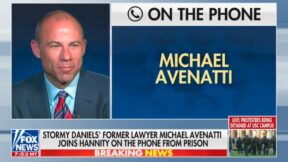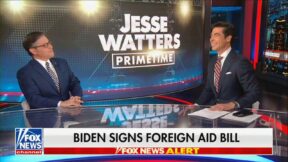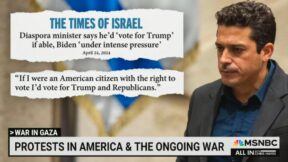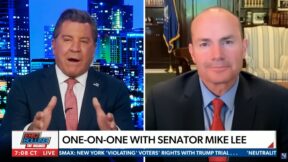Chris Hastings Talks Alabama Seafood & The Top Chef/BP Controversy: ‘BP F*cked It Up’
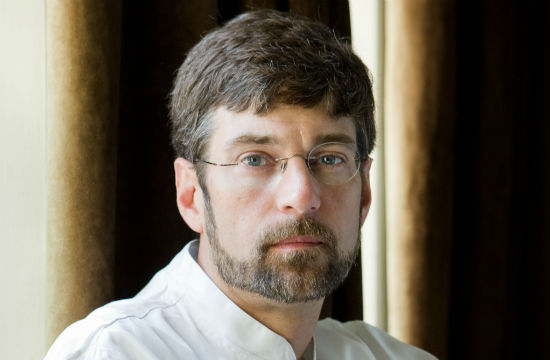
James Beard Award-winning Best Chef: South Chris Hastings, of Hot and Hot Fish Club in Birmingham, AL, trekked up to New York last week to host a dinner at the James Beard House and bring a taste of Gulf shrimp to the Alabama Gulf Seafood No Bone Zone at last weekend’s Big Apple Barbecue Block Party. We managed to snag him for a few questions and, since he’s such an advocate of reestablishing the Gulf’s seafood economy, we had to ask him about Top Chef’s BP blood money scandal. Check out our Q&A with Chris below for his candid response, as well as his passionate advocacy of Gulf seafood.
The Braiser: Tell us about the demo you’re doing here at BABBQ.
Chris Hastings: I am here representing Alabama Seafood. I’m on the Alabama Seafood Commission. The seafood industry in Alabama, because of hurricanes and the oil spill, is on the precipice of collapsing, because people don’t buy the seafood anymore, because they’re like, ‘Oh I can’t, it’s [unsafe].’ But the reality is, it’s awesome! And I would hate, on my watch, to know that that industry would collapse if I didn’t advocate for them. So I try to get out and advocate by putting the seafood into people’s mouths. Because that is where the money is. Because I can talk all I want, in an interview, or whatever, and that’s all really good, but until you put it in your mouth and are like, ‘What just happened to me?’ That’s where the money is. Ask anybody who had that seafood today. They’ll tell you they never had a shrimp as good. They’re rich, and almost lobster-like. Beautiful shrimp. Buttery, just amazing.
Because most Americans, 80% of the shrimp they eat is imported, and it’s not a very good quality shrimp. It’s not very healthy. It’s treated with all kinds of less-than-great things, antibiotics and other chemicals, in these tanks in conditions that we in America would never allow, but we do allow to be imported. And by dumping all of that onto our shores, we’re commoditizing shrimp, and forcing [American] shrimpers to sell at the lowest common denominator price, and they still have to meet all the regulations, pay all the higher fuel prices, and it’s really very difficult. So try to encourage people to insist on domestic seafood, always, and insist on Alabama seafood, and just eat it! And know that it’s safe, know that it’s delicious, know it’s the best seafood you can ever come across, and I know because I cook it every day. And that’s what I’m here to talk about.
You’re viewed as a tremendously respected veteran of Southern Cuisine, and you’ve groomed a lot of chefs who have come up to become very successful. You must feel a great sense of pride about being a mentor to so many chefs that are really hot on the scene now.
It’s a great question, actually, because I’ll tell you, on Wednesday night, we did a dinner at the Beard House with some of the guys who have graduated from my kitchen, and you know, we were introducing them to New York media and the market, and they put out beautiful, delicious food. I was very proud of them. For me, I was a proud dad, you know, here are my boys, who came up in my kitchen and in other kitchens, and they’ve now found their own voice, and who they are as cooks and chefs. And they’re all different than me, which is what you would hope, and the food was tremendous.
Can you talk a little bit about this idea of Southern food being the One True American Cuisine?
People who don’t understand the South, which is a lot of people, see Southern food as kind of one-dimensional — you know, collard greens, fried chicken, everything fried in lard, all that kind of stuff. But the truth of the matter is, the South is an incredible tapestry of cultures and influences from around the world that, over time, have created this incredible tapestry of different types of Southern cuisine. So if you go to Tennessee, and you’re in certain parts of Tennessee, there’s lamb barbecue up there. Who knew?! Or you know, you go to New Orleans, you go to Charleston, you go to Alabama, you go all over the South — it all has a contextual similarity, but yet very rich and different in its own way. It’s a wonderful, wonderful time to be talking about the South. There’s a real renaissance taking place now amongst the creative classes, and of course chefs are a part of that. It’s just a dynamic time to be in the South cooking, and eating, and listening to music, and buying great clothes from Billy Reid. It’s really just a dynamic right now. It’s really just a cool time.
And finally, since you brought up the oil spill earlier, I have to ask you how you feel about the Top Chef NOLA/BP blood money controversy. Do you have an opinion?
You know you can always get an opinion from me, and an honest one. Alright. So the worry here is that BP is paying people to white wash their little mess that they created. Well, I would say that you kind of have to pump the brakes on that a little bit, because BP can’t go in and suck all that oil off the bottom of the ocean. It can’t. There’s no technology that allows you to do that. That oil is there, and it’s probably going to be there for millennia, and they screwed it up, and they know it. And their resource is their money. And they’re pumping a lot of money into seeing that the seafood industry is propped up, and people are understanding that that seafood is healthy, and they’re making sure that these people don’t go out of business by pumping money into these economies that need it. And if part of that is doing a show on Bravo, Top Chef, and people see all of that great seafood, and chefs out in that water, catching that fish, and they go, ‘Oh, cool, I can eat that seafood now,’ well then the industry is saved, and really that’s all that matters.
BP fucked it up, and they should be pumping a lot of money in. And I get people losing their mind about it, but what other [choice do we have]? You need to access that money from the people who screwed it up, and try to save the industry. And if promoting it through these shows, like Bravo, or me, or whatever — I mean, the Alabama Seafood Commission is funded by BP. I hate those guys, but [the Alabama Seafood Commission] is taking the money from BP so that Alabama gets its share of the pie, so that we can preserve this industry, promote the seafood, and make sure that this industry doesn’t collapse again on our watch. I don’t take money from BP; others do and I don’t have a problem with it, because the work they’re doing on behalf of the seafood industry — if they were stuffing it in their pockets and getting rich off of it, and not helping the industry, I would have a problem with it.
[This interview has been edited and condensed.]
RELATED: UPDATE: Treme Creator David Simon & Andy Cohen Trade Barbs Over BP’s Top Chef Money
Why The Treme/Top Chef Tax Break Debate Is Irrelevant, And Louisiana Still Loses
Adam Richman On Hush-Hush New Projects, NoLa Politics, And Why Audiences Need Him
Emeril Lagasse Defends BP: ‘Those Guys Stepped Up To The Plate And They Did What They Had To Do’
Have a tip we should know? tips@mediaite.com

